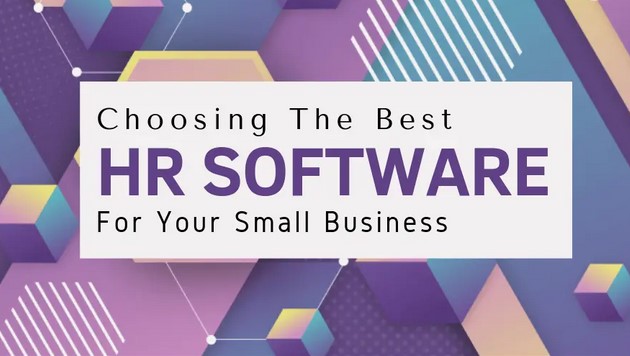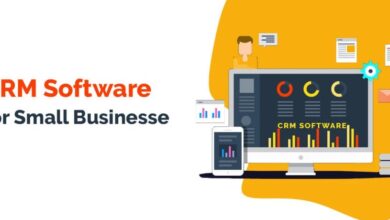Choosing the Best HR Software for Your Small Business

In the fast-paced world of small business operations, managing human resources efficiently is crucial for sustained growth and success. As your business expands, so does the complexity of HR tasks, making it essential to invest in reliable HR software. Choosing the right HR software can streamline processes, save time, and enhance overall productivity. In this comprehensive guide, we will explore the key factors to consider when selecting the best HR software for your small business.
Understanding the Role of HR Software for Small Businesses
HR software is a comprehensive solution designed to streamline various HR functions, including recruitment, payroll, employee management, and performance tracking. For small businesses, selecting the right HR software is a strategic decision that can significantly impact overall efficiency.
Numerous HR software solutions cater specifically to the needs of small businesses. These solutions often offer scalability, ensuring that as the business grows, the HR software adapts to evolving requirements.
Key Considerations When Choosing HR Software for Small Businesses
1. Understanding Your HR Needs
Before diving into the vast array of HR software options, it’s crucial to understand your business’s unique HR needs. Start by identifying the specific challenges you face in managing your workforce. Are you struggling with payroll processing, employee onboarding, performance management, or all of the above? Conduct a thorough assessment of your current HR processes to pinpoint areas that can benefit from automation.
2. Scalability and Flexibility
A small business today might grow into a medium-sized enterprise tomorrow. Therefore, it’s vital to choose HR software that can scale alongside your business. Look for solutions that offer flexibility and scalability to accommodate the changing needs of your organization. The best HR software should be able to seamlessly adapt as your workforce expands, ensuring a smooth transition without the need for frequent software changes.
3. User-Friendly Interface
Ease of use is a critical factor when selecting HR software for your small business. A user-friendly interface ensures that your team can quickly adapt to the new system, minimizing downtime and training costs. Look for software with an intuitive design and clear navigation. Most reputable HR software providers offer demonstrations or trials, allowing you to assess the user interface and experience before making a decision.
4. Integration Capabilities
Efficient HR management involves the integration of various processes, such as payroll, time and attendance tracking, and employee benefits. Choose HR software that seamlessly integrates with other essential business applications, like accounting and project management tools. Integration eliminates data silos, reduces manual data entry, and enhances overall workflow efficiency.
5. Compliance and Security
HR processes involve handling sensitive employee information, making data security and compliance with regulations a top priority. Ensure that the HR software you choose complies with data protection laws and industry regulations. Look for features such as encryption, secure login credentials, and regular software updates to safeguard your employees’ confidential information.
6. Customization Options
Every small business is unique, and your HR software should be adaptable to your specific requirements. Opt for a solution that offers customization options, allowing you to tailor the software to meet the distinct needs of your organization. Customizable fields, workflows, and reporting functionalities empower you to create a personalized HR system that aligns perfectly with your business processes.
7. Mobile Accessibility
In today’s mobile-centric world, the ability to access HR functions on the go is a valuable feature. Choose HR software that offers mobile accessibility, enabling you and your team to manage HR tasks from anywhere, at any time. Mobile accessibility not only enhances convenience but also ensures that critical HR functions can be performed promptly, even when you’re away from the office.
8. Analytics and Reporting
Data-driven insights are essential for making informed decisions about your workforce. Opt for HR software that provides robust analytics and reporting features. This allows you to track key metrics, such as employee performance, turnover rates, and attendance patterns. Analytical tools empower you to identify trends, forecast future needs, and make strategic decisions to enhance overall business performance.
9. Cost Considerations
While investing in HR software is a strategic move for your business, it’s crucial to consider your budget. Compare pricing plans offered by different HR software providers and assess which one aligns with your financial capabilities. Keep in mind that some providers offer scalable pricing models based on the size of your workforce, ensuring that you only pay for the features and services you need.
10. Customer Support and Training
Even the most user-friendly HR software may require occasional support or training. Evaluate the customer support services offered by potential providers, including the availability of live support, documentation, and training resources. Responsive customer support ensures that you can quickly resolve any issues, minimizing disruptions to your HR processes.
Top HR Software Solutions for Small Businesses
Zenefits
Zenefits offers a comprehensive suite of HR tools, covering everything from payroll to benefits administration. Its user-friendly interface makes it suitable for small businesses.
BambooHR
Known for its scalability, BambooHR is an excellent choice for growing businesses. It offers features for recruitment, onboarding, and performance management.
Gusto
Gusto specializes in payroll and benefits management. It is user-friendly and offers automated features, making it ideal for small businesses with limited HR resources.
FAQs About Choosing HR Software for Small Businesses
Q1: How does HR software contribute to employee engagement?
A1: HR software can automate routine tasks, allowing HR professionals to focus on creating engaging programs, fostering a positive work culture, and boosting employee morale.
Q2: Can HR software help with compliance management?
A2: Yes, many HR software solutions come equipped with features to track and ensure compliance with labor laws, privacy regulations, and industry-specific requirements.
Q3: Is it necessary for small businesses to invest in dedicated HR software?
A3: While not mandatory, investing in HR software can significantly improve efficiency, reduce manual errors, and contribute to a more organized and compliant HR function.
Q4: How can HR software aid in remote workforce management?
A4: HR software with mobile accessibility allows for remote access to HR-related tasks, making it easier for both employees and HR professionals to manage various aspects of HR remotely.
Q5: Can HR software be customized for specific industry needs?
A5: Many HR software solutions offer customization options to align with specific industry requirements, ensuring that the software meets the unique needs of the business.



